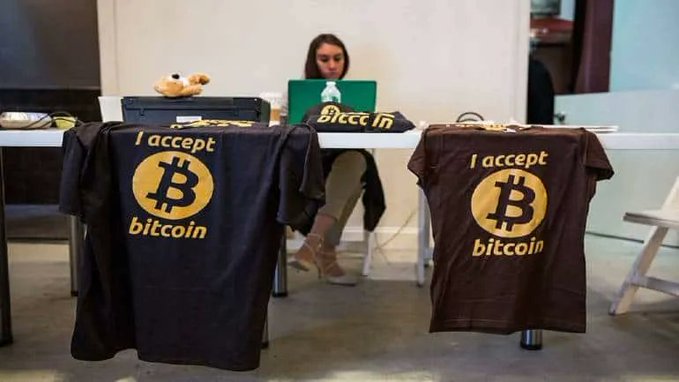AI is relevant because it holds the potential for making crypto workable for the vast majority of Americans who do not wish to bother with the intricacies of a crypto wallet.
NEW YORK, NY – FEBRUARY 26: Shirts for sale are shown at the entrance of the Bitcoin Center NYC during a class on the basics of Bitcoin and how to trade the digital currency on February 26, 2014 in New York City. The recently opened center offers a physical space for people to trade digital currencies, including bitcoin. Bitcoin Center NYC also offers classes for people interested in learning about digital currencies. (Photo by Andrew Burton/Getty Images)
Will AI save crypto?
It is admittedly a strange question — surely two scary technologies are more dangerous than one! — and yet the future of financial innovation may depend on it. The question is all the more pressing with the ongoing collapse of FTX, a major crypto exchange. AI is relevant because it holds the potential for making crypto workable for the vast majority of Americans who do not wish to bother with the intricacies of a crypto wallet.
The history of crypto is replete with failures of the centralized institutions, not the core decentralized crypto mechanisms. Mt. Gox was a Bitcoin exchange based in Japan that went under in 2014. The failure of FTX, which had at one point a valuation of $32 billion, is now part of this history.
Mots-clés : cybersécurité, sécurité informatique, protection des données, menaces cybernétiques, veille cyber, analyse de vulnérabilités, sécurité des réseaux, cyberattaques, conformité RGPD, NIS2, DORA, PCIDSS, DEVSECOPS, eSANTE, intelligence artificielle, IA en cybersécurité, apprentissage automatique, deep learning, algorithmes de sécurité, détection des anomalies, systèmes intelligents, automatisation de la sécurité, IA pour la prévention des cyberattaques.





